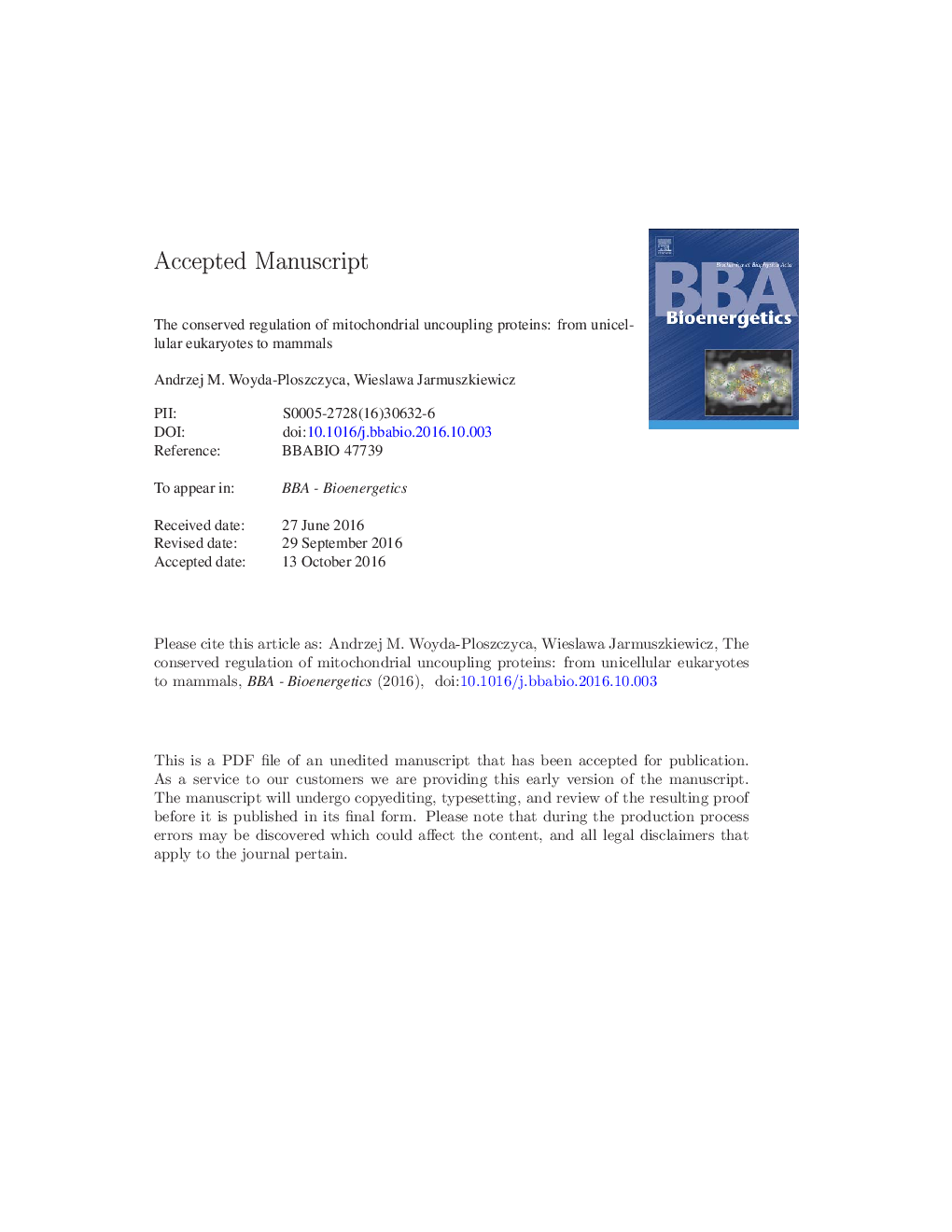| Article ID | Journal | Published Year | Pages | File Type |
|---|---|---|---|---|
| 5507165 | Biochimica et Biophysica Acta (BBA) - Bioenergetics | 2017 | 41 Pages |
Abstract
Uncoupling proteins (UCPs) belong to the mitochondrial anion carrier protein family and mediate regulated proton leak across the inner mitochondrial membrane. Free fatty acids, aldehydes such as hydroxynonenal, and retinoids activate UCPs. However, there are some controversies about the effective action of retinoids and aldehydes alone; thus, only free fatty acids are commonly accepted positive effectors of UCPs. Purine nucleotides such as GTP inhibit UCP-mediated mitochondrial proton leak. In turn, membranous coenzyme Q may play a role as a redox state-dependent metabolic sensor that modulates the complete activation/inhibition of UCPs. Such regulation has been observed for UCPs in microorganisms, plant and animal UCP1 homologues, and UCP1 in mammalian brown adipose tissue. The origin of UCPs is still under debate, but UCP homologues have been identified in all systematic groups of eukaryotes. Despite the differing levels of amino acid/DNA sequence similarities, functional studies in unicellular and multicellular organisms, from amoebae to mammals, suggest that the mechanistic regulation of UCP activity is evolutionarily well conserved. This review focuses on the regulatory feedback loops of UCPs involving free fatty acids, aldehydes, retinoids, purine nucleotides, and coenzyme Q (particularly its reduction level), which may derive from the early stages of evolution as UCP first emerged.
Keywords
CarboxyatractylosideQoXCATRHNEFFAOXPHOSBATANT4-hydroxy-2-nonenalROSAldehydesFree fatty acidFree fatty acidsbrown adipose tissueadenine nucleotide translocaseUncoupling proteinsRALOxidative phosphorylationMitochondriaPurine nucleotidePurine nucleotidesAll trans-Retinoic AcidMitochondrial membrane potentialCoenzyme QReactive oxygen species
Related Topics
Life Sciences
Agricultural and Biological Sciences
Plant Science
Authors
Andrzej M. Woyda-Ploszczyca, Wieslawa Jarmuszkiewicz,
